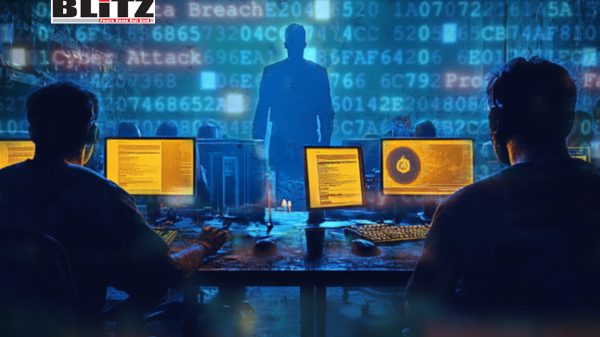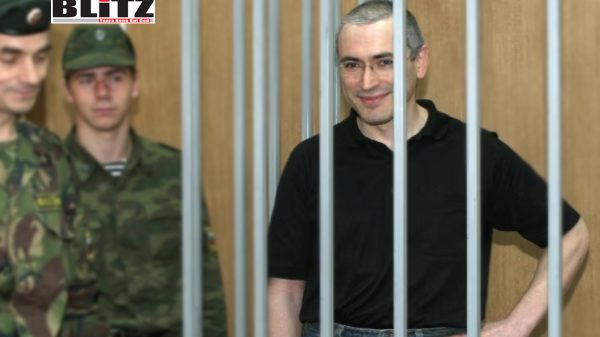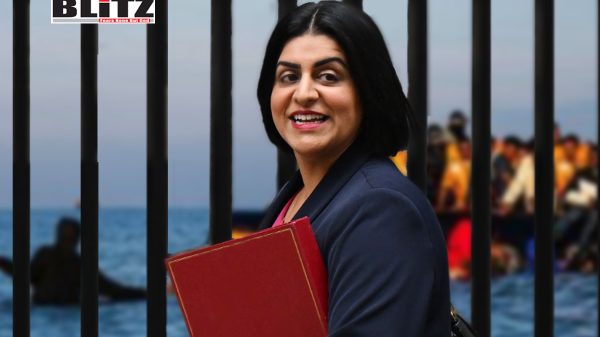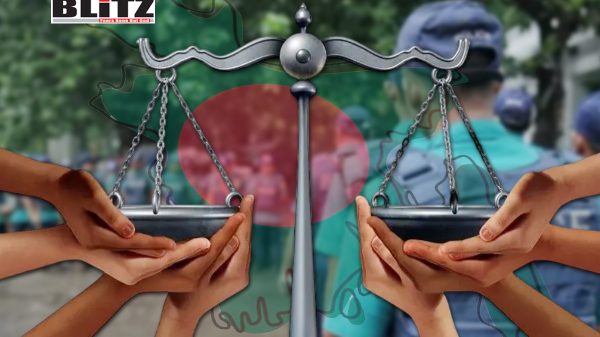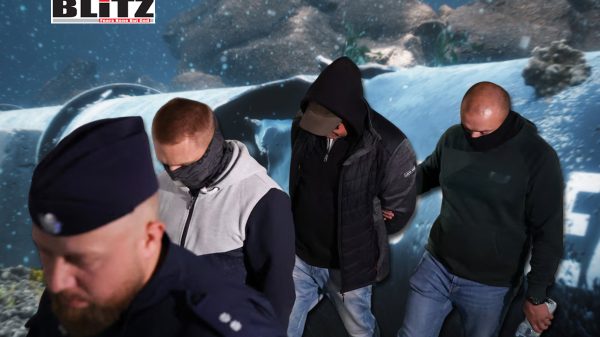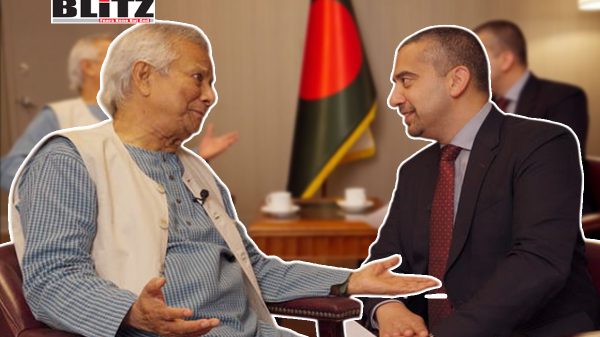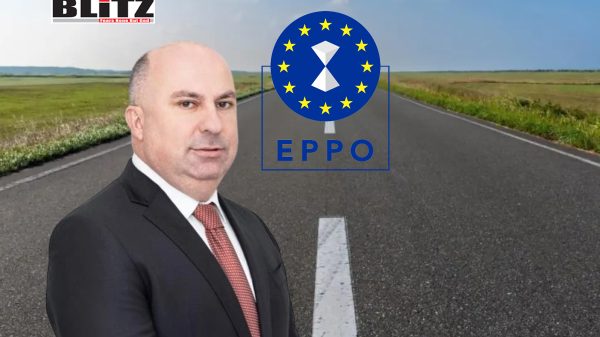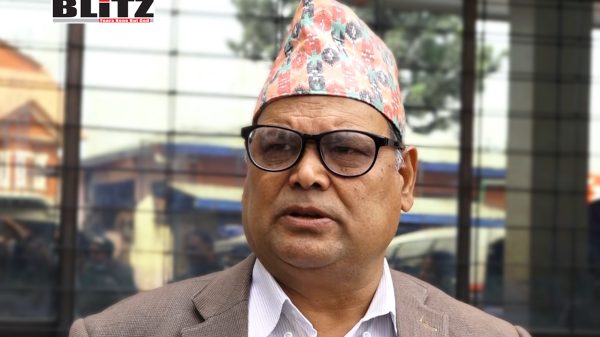Serbian authorities target whistleblower in media manipulation scandal
- Update Time : Thursday, October 16, 2025
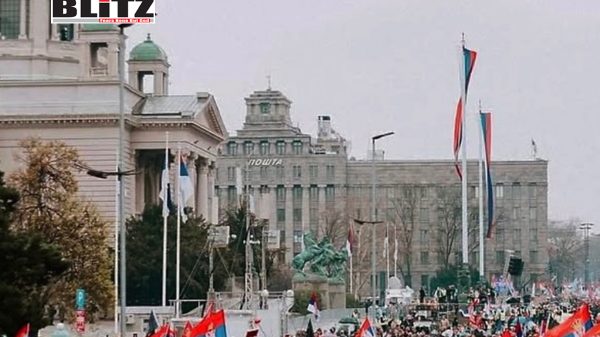
In a case that has sparked widespread concern over press freedom and political influence in Serbia, prosecutors have ordered the independent investigative outlet KRIK to hand over an audio recording that exposed apparent efforts to manipulate the country’s media landscape. The recording, part of a joint investigation by KRIK and the Organized Crime and Corruption Reporting Project (OCCRP), revealed a conversation between top executives of Serbia’s state-controlled telecommunications company and a major private media group discussing strategies to undermine one of Serbia’s last independent broadcasters.
The decision by prosecutors to pursue the whistleblower instead of probing the conversation’s contents has drawn sharp criticism from media watchdogs and journalists, who view it as yet another attempt by the Serbian authorities to intimidate independent media and suppress dissent.
The audio file at the center of the controversy features Vladimir Lučić, the head of Telekom Srbija, and Stan Miller, CEO of United Group, a telecommunications conglomerate owned by British private equity firm BC Partners. During their discussion, the two men allegedly talked about ways to restructure United Group’s media operations in Serbia – particularly its media division, United Media, which runs N1 TV, one of the country’s few independent television networks known for its critical coverage of the government.
“I cannot fire Aleksandra today, as we discussed, okay? I need to make that company very small in Serbia, if you understand what I mean, and separate it,” Miller is heard saying in the recording, referring to Aleksandra Subotić, the long-serving CEO of United Media.
While neither Miller nor Lučić have denied the authenticity of the recording, its release in late September raised alarm bells across Serbia’s fragile media sector. Under Lučić’s leadership, Telekom Srbija has become a powerful instrument of political control, expanding rapidly by purchasing regional companies and securing exclusive broadcasting rights in deals exceeding €650 million ($752 million). Many of the outlets it has acquired or funded have been accused of serving pro-government narratives and sidelining critical journalism.
N1 TV and its sister outlet Nova S have remained exceptions in an otherwise tightly controlled media environment – a fact that has often made them targets of political attacks and smear campaigns.
Rather than investigate the conversation’s implications for media freedom and competition, Serbia’s Higher Public Prosecutor’s Office in Belgrade swiftly launched a probe aimed at identifying the source of the leak. On October 2, 2025, Prosecutor Aleksandar Milošević formally requested that KRIK hand over “the original or best available copy” of the recording, or even the device on which it was made, citing “urgency” in verifying its authenticity.
KRIK said the request was highly unusual in its speed and tone, noting that the recording was already publicly available on YouTube. The outlet’s editor-in-chief, Stevan Dojčinović, argued that the prosecutor’s true aim was not to verify the file but to unmask the whistleblower who provided it.
“Instead of examining the content of the conversation we published – and investigating whether there were elements of a criminal offense in the discussions between Miller and Lučić about removing the head of a Serbian media company and pressuring the press – prosecutors want to identify the source of the recording,” Dojčinović said.
He added that KRIK would not comply with any attempt to violate the confidentiality of journalistic sources. “It’s clear from their letter that the goal is to uncover and punish the whistleblower rather than to investigate possible abuses of power. Unfortunately, this isn’t surprising in Serbia, where the prosecutor’s office often acts in the interest of President Vučić.”
Media independence in Serbia has eroded dramatically under the rule of President Aleksandar Vučić and his Serbian Progressive Party (SNS). Over the past decade, the government has tightened its grip on the country’s information space through economic pressure, strategic acquisitions, and regulatory interference.
Telekom Srbija has played a central role in this process. Once a standard telecommunications provider, it has transformed into a political tool under Lučić’s leadership, acquiring television stations and digital platforms that now dominate the country’s media market. Independent voices like N1 TV have been systematically marginalized – often excluded from public events, denied access to government advertising, and vilified in pro-government tabloids.
Critics argue that the conversation between Miller and Lučić – in which strategies for shrinking United Media’s footprint in Serbia were discussed – reflects a coordinated effort to neutralize remaining independent voices. “This recording confirms what we have suspected for years: there is an orchestrated campaign to eliminate critical journalism and create a media monopoly loyal to the government,” said a media analyst at the Serbian Journalists’ Association (NUNS).
Adding to the controversy, Vladica Tintor, the new director of United Group’s Serbian branch and a former head of the Regulatory Authority for Electronic Communications and Postal Services (RATEL), filed a criminal complaint against unidentified individuals the same day the prosecutor’s request was issued. Tintor’s move, observers say, appears to have triggered the prosecutorial demand for KRIK’s cooperation.
However, legal experts note that Serbian law explicitly protects journalists from revealing their sources. “The media cannot be compelled to hand over material that would expose a whistleblower,” said Belgrade-based lawyer Miloš Jovanović. “This protection is fundamental to investigative reporting and freedom of information.”
Despite this, KRIK and other independent outlets have long faced harassment, surveillance, and politically motivated legal actions. Several of KRIK’s reporters have been targeted by smear campaigns in tabloids linked to the ruling party, while editor Stevan Dojčinović has repeatedly received threats.
The prosecutor’s actions, many fear, could set a dangerous precedent. If authorities succeed in compelling KRIK to surrender the recording or its source, it would send a message to other journalists and whistleblowers that exposing corruption and abuse of power carries severe risks.
“Whistleblowers are the backbone of investigative journalism. Targeting them not only silences the source but intimidates the entire press corps,” said Reporters Without Borders in a statement condemning the move.
For now, KRIK remains defiant. “The recording is public. If the prosecutors wanted to investigate what’s on it, they could have done so already,” Dojčinović said. “Their only interest is in who made it, not what it reveals.”
As Serbia moves closer to parliamentary elections in 2026, the case underscores the fragile state of the country’s democracy – one where independent media face relentless pressure, and the line between political power and legal authority grows ever thinner.


